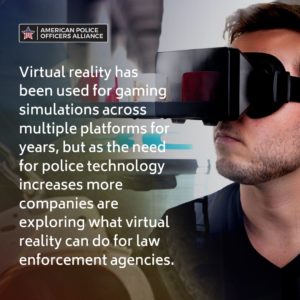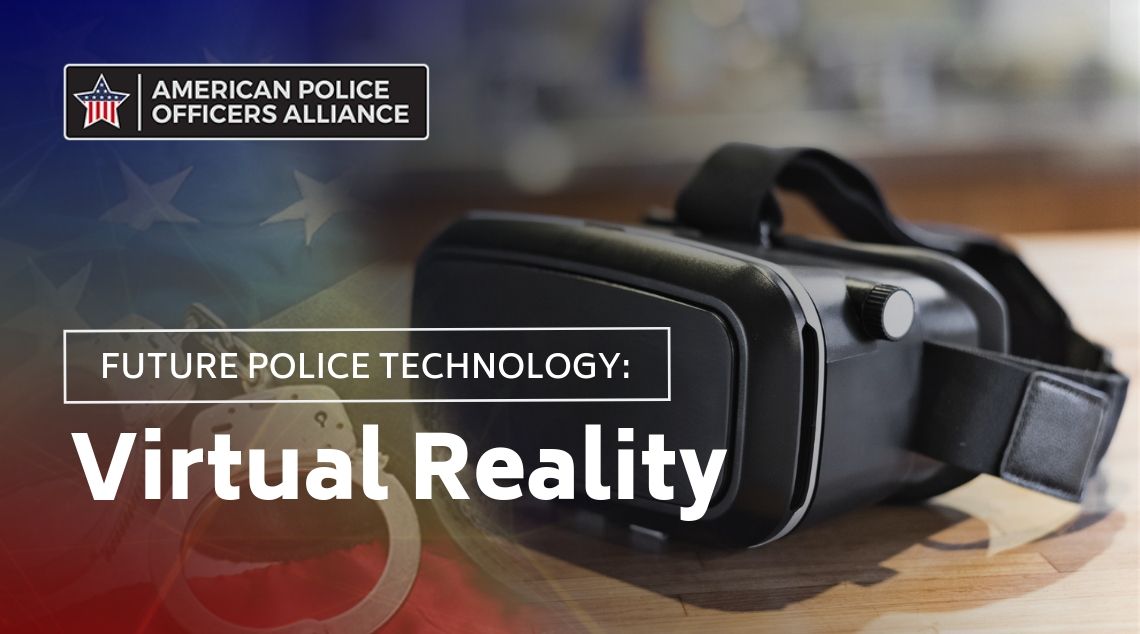While virtual reality has been around for quite some time, law enforcement agencies are just now diving into this innovative technology. For years, virtual reality has been used for gaming simulations across multiple platforms, but as the need for police technology increases more companies are exploring what virtual reality can do for law enforcement agencies.
Some are surprised to learn that virtual reality can be used as a technology for police officers- but it is actually significantly helping to improve learning and training processes. As times continue to change and crime rates continue to increase, there is a need for better, more progressive technology to help train officers and agents that are in the field. Thankfully, virtual reality technology can help.
Departments all over the country are beginning to utilize the benefits of VR in their own training and educational processes. Read on to further explore what virtual reality can do for police officers and other law enforcement agents.
Virtual Reality for Training
Police academy training has included mock situations in which chaotic scenes are acted out as a way to train and prepare officers for things that may arise when in the field. However, it has been next to impossible to act out a scenario without putting colleagues in harm’s way.
Thankfully, there is a technology that is allowing officers-in-training and current ones to jump into a virtual reality session. In these sessions, the only thing that the officer can see is the training scene, which puts them right into the action.

Virtual reality training sessions include actual movements and actions like ducking when someone shoots, walking a steel beam that is 30 feet in the air, or even simple scenarios like a traffic stop in which administering a ticket or warning is necessary. These different scenarios allow police officers to get firsthand experience with problems that they may later face in the field.
The Chicago Police Academy recently implemented a virtual reality program into their educational and training program. This technology is allowing their officers to undergo training that will help prepare them for interacting with someone who is mentally ill. In this day and age, mental illnesses often go ignored, especially when law enforcement is involved. However, the Chicago Police Academy is trying to make that change. Their virtual reality program is preparing officers for not only emergent or hostile situations but also ones that involve emotional and mental patience.
Virtual Reality for the Current Generation
Aside from the training and educational side of virtual reality, another interesting aspect is that a lot of the current police officers are of the millennial generation. This may not seem relevant but a lot of male millennials have played video games, which goes hand in hand with the virtual reality technology.
Because so many of the current officers have experience with combat-involved video games, they are more able to adapt to VR simulations to help them train. Aside from being able to adapt, they also can relate to the training sessions because they mimic many video games.
Virtual Reality in the Future
Police technology, just like any other technology, continues to evolve everyday. While there are only a few departments in the country that have implemented this training technology, it is our hope that more will continue to do so. Overall, the virtual reality technology allows for more accurate training, which will greatly benefit police officers during their careers.
Virtual reality training and education will hopefully better prepare police officers for the chaotic situations that they will face each and every day. With technologies like these, it is hard to imagine a world without them. Moving forward, we are confident that police departments and law enforcement agencies will explore the uses and benefits of virtual reality training.
One of the most difficult situations for a law enforcement officer to confront is evaluating use of force. Several companies are working with police departments to pilot virtual training systems that can better prepare law enforcement officers for hazardous situations that require quick reflexes and split-second judgement. Read more here.










